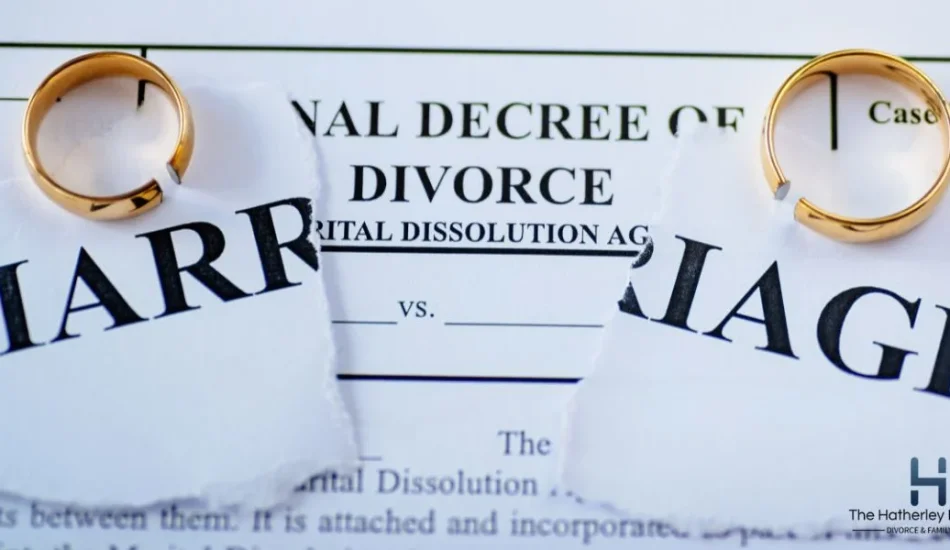Orange County Divorce Rate & Statistics

Divorce in California impacts thousands of lives each year, from long-married couples dividing high assets to younger families navigating custody and support. Understanding the local Orange County divorce rate and statistics can help those considering a divorce or separation understand what to expect and why having experienced legal counsel matters.
Orange County by the Numbers
3.1 million people call Orange County home, making it one of California’s most populous counties. Given the large number of residents, there are many divorce cases and courtroom filings every year. Local data estimates that 9-11% of adults in the county are divorced, which is higher than the California average of 5.88% of people who are divorced.
How Orange County Compares to California and the U.S.
California is often noted for having one of the lowest statewide divorce rates in the U.S., with the national average being around 7%. The country has been seeing a steady decline in divorces, with a 27% decrease from 2011.
One reason for the decline may be later marriage. Couples are increasingly delaying marriage until they are older and more established. In the mid-20th century, the median age at marriage was 22.5 for men and 20.1 for women. In 2024, the average age was 30.2 for men and 28.6 for women.
Factors Contributing to Divorce Rates in Orange County
While each couple divorces for different reasons, there are certain factors that are more prevalent for the residents of Orange County, including:
- The high cost of living. Compared to many other areas in the nation, Orange County’s high cost of living can create a significant risk of financial stress and tension. This economic pressure often strains marriages and affects finances and the ability to maintain a healthy work-life balance.
- Lifestyle and career pressures. The area’s fast-paced, high-achievement environment can put marriages on the back burner. As people focus on pursuing their career goals, their relationships can easily become a lower priority.
- Favorable California divorce laws. California is a no-fault divorce state, which streamlines the process and makes it easier to dissolve a marriage without proving any wrongdoing. Many people may enter marriages more readily because of this, or feel more confident about choosing to divorce under more equitable laws.
- Social acceptance. California sees divorce as an increasingly socially acceptable option. Most of the social stigma attached to divorce is gone, and this acceptance may make divorce a more viable and less emotionally difficult choice for people.
- Infidelity and social influences. The proliferation of social media and online dating platforms has significantly altered the dynamics of modern relationships. This increase in accessibility to extramarital interactions is a contributing factor to the erosion of trust and the rise of divorce rates.
- Social pressures and unrealistic expectations. In wealthier areas like Orange County, many couples feel intense pressure to maintain affluent, luxurious lifestyles. When they fail to meet the expectations of wealth or social status, this dissatisfaction can lead to divorce.
Why You Need to Hire a Divorce Lawyer
Statistics can’t predict any one marriage, but they do underline the simple fact that divorce does happen in Orange County. Since the county has a large, varied population and an active court system, you need to work with a lawyer who knows local procedures and community-specific factors that can save you time and reduce your stress.
Whether your divorce is straightforward or complex, having early, organized legal guidance on custody, support, and property division can make a huge difference for your future.
FAQs
What Is the Divorce Rate in Orange County?
Orange County has among the highest rates of divorce in California. It is notably higher than the national average, with 33 divorces filed every day in Orange County. This may be due to the higher cost of living, career pressures, and California’s no-fault divorce laws, which make divorcing a more equitable process.
How Does the No-Fault Divorce Law Impact a Shorter-Term Marriage?
In California, no-fault divorce simplifies the process for short-term marriages by only requiring irreconcilable differences as a reason for the divorce. Typically, this means the couple has less community property, they may not have children, and spousal support is unlikely to be ordered due to the length of the marriage.
What Is the Typical Duration of a Marriage Before Divorce in California?
The average length of a marriage that ends in divorce in the state is generally around eight years. While the length of the marriage doesn’t impact every aspect of the divorce, such as child custody and property division, it does impact spousal support decisions. Marriages lasting ten years or more are legally considered “long-duration.”
How Long Does a Divorce Take in Orange County?
California law states that the earliest a divorce can become final is six months and one day after the Petition and Summons are served on the other spouse, or the other spouse files their first paper, whichever is first. This is called the “waiting period.” The overall process can take longer depending on whether the case is contested or uncontested and other unique circumstances of each couple’s case.
What Should I Look for in an Orange County Divorce Attorney?
When you want to hire a divorce lawyer, look for an Orange County attorney with local experience, proven results in all kinds of asset, child-custody, spousal and child support, and visitation cases. Check for strong client reviews on Avvo and Google. Make sure you understand how they bill for services. Prioritize responsive communication to your questions, proven negotiation skills, and familiarity with OC Superior Court judges at the Lamoreaux Justice Center. Look for a Certified Family Law Specialist.
Do You Need Help With a Divorce in Orange County?
Facing a divorce is challenging. Do not go through it alone. At The Hatherley Firm, Inc., we provide dedicated legal support to families in Orange County, helping them navigate the divorce process and successfully transition to the next chapter of their lives. Contact our Orange County office today and hire a divorce lawyer to discuss your case.
Submit Consultation Inquiry
* Required Field


